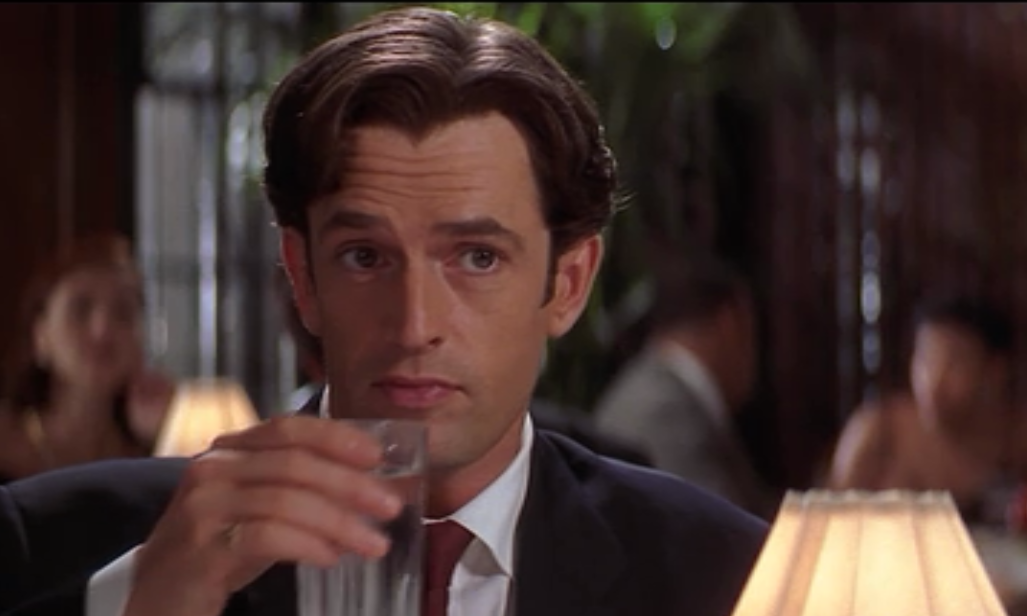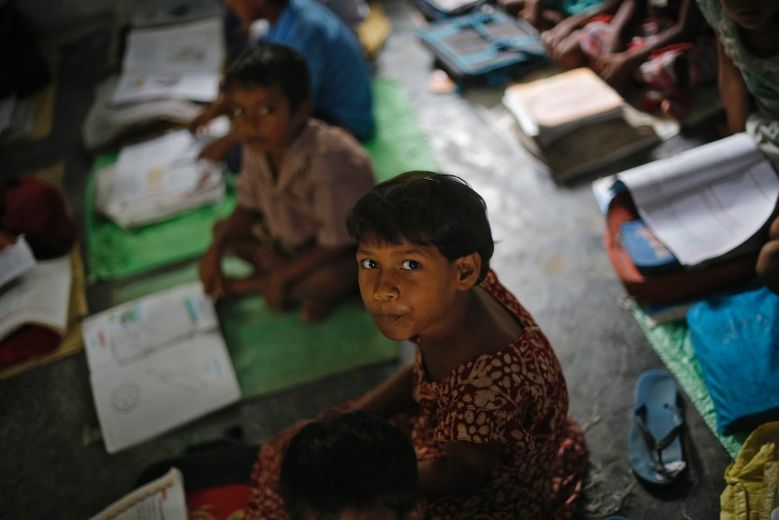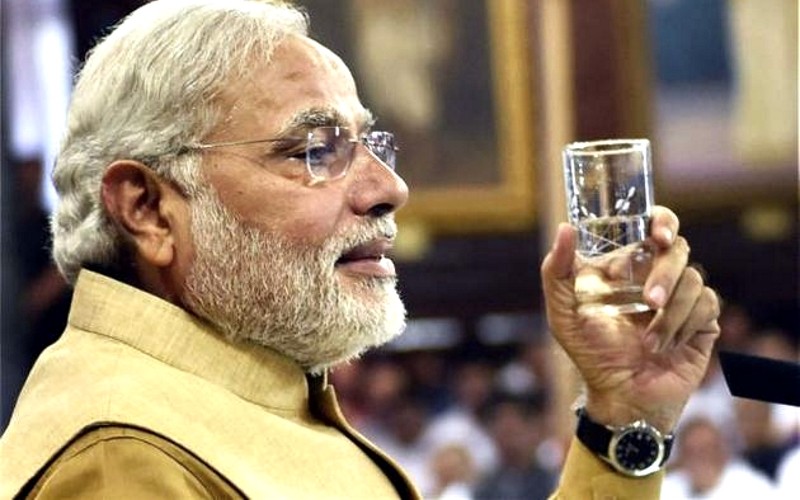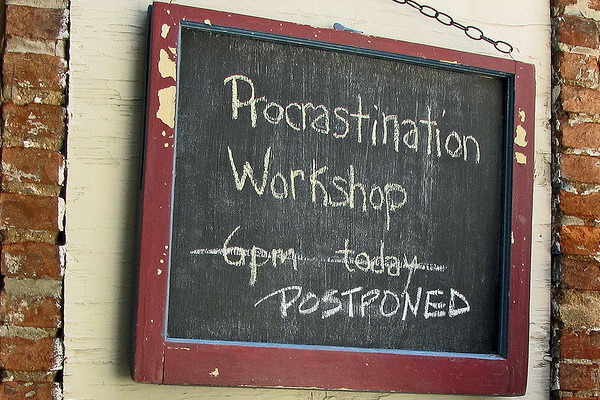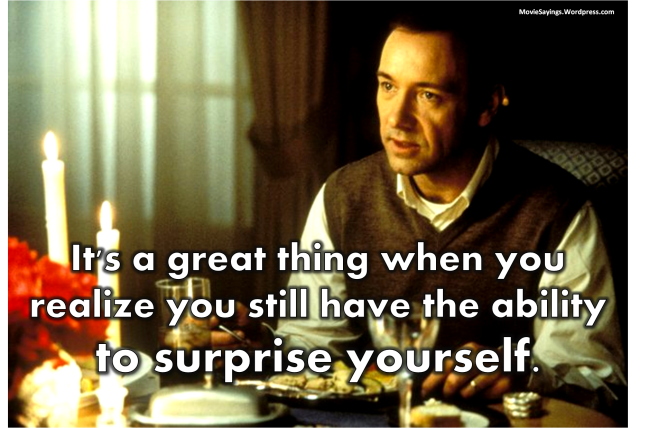Giving free uniform and money to buy books to students every term is not enough. While these things will ensure every student goes to school on the first day to collect his free gifts, it is only inclusive and quality teaching that will retain them in class.
Initiatives by the CSR branches of many big firms and NGOs have taken it upon themselves to fill in the gaps left by our faulty education system ( or a lack thereof) in our youth’s struggle to advent to a better standard of living. Programmes like Teach India, Make a Difference and Teach for India train enthusiastic volunteers, across all age groups, to empower the country’s disadvantaged youth by giving them a medium of expression — using English.
(Written for YKA, original write-up published here)
Just as I sit down to write this, all my school memories, till the point where I used to attend classes, come rushing back to me. Let us sample a typical school classroom.
Enter: Teacher.
The entire class rises in one swift movement, straightens their skirts (girls) and trousers (boys) and wishes the teacher a rather musical GOOOOD MORNIIIIING MAAAM, with their pitch rising in one great crescendo.
Next, the teacher fusses over attendance, fills in the class Performa (even before starting to teach), asks her favourite student to read the chapter from the point where she left off in the last class…while at the perpendicular end of the classroom, the backbenchers resume making paper planes and crumpling balls of paper to throw at each other, play pen fights and book cricket and scribble their lovers’ names on the last page of their notebook.
For a long time now, this was thought to be the only way to conduct classes. Here’s some news though: times are changing.
The youth of our country, disappointing as it may be for most members of the older generation, has big, powerful, and ambitious dreams. In the small and dingy classroom of an NGO located in East Delhi, where I teach spoken English to a class of 12 students, I’ve learnt what they say about the most pristine lotus blooming in muddy waters is not just a pretty thing to say, after all.
As I enter the class, I see my students already in their places, craning their necks towards the door, anticipating their teacher to walk in any moment. And just as I enter, “Gooood Afternoon, ma’am!” My class breaks into an elongated choral greeting that echoes the enthusiasm on their faces — a thirst to absorb all knowledge that comes their way, as if it’s their only shot at an education.
It’s a little unsettling, though, to see my students, all of them older than me, call me “ma’am”, and give me the respect I am used to giving my much older, learned teachers. My students comprise of a very colourful spectrum of people and professions — housewives (who double up as Sanskrit tuition teachers), correspondence students and school pass outs that haven’t yet made plans of further studies. But when they come to their English for Employability class, all of them share a common goal, which is to learn to “speak” English.
For my first exercise in class, I asked them why they wanted to learn English and what were their expectations from this course. It was also supposed to be the classic ice-breaker, and I hoped to get to know them a little better through the activity. But it did so much more than just break ice. It broke pre-conceived notions in my head, and tugged at certain psychological strings so hard, that I’m writing this here.
The learners in my class came up with answers that not only amazed me, but also made me feel so incredibly heartened that I couldn’t stop beaming at the chart of paper on which they listed their aspirations:
“I want to learn English…
for personality development,
for job,
for future,
for interview in MNC,
improve living condition,
because English is an international language so it is very important,
for confidence”.
I put up the chart on the wall facing the class. The difference, in the class in my school where I was a student, and this one where I’m teaching was so pronounced at this point. Most students in my class in school came from decent/wealthy backgrounds. They could afford to attend a public school and have the best exposure and infrastructure at their disposal, and coming from them, such weighty words would make sense. But for these people, who’d studied in Government schools, spent all their lives in single-room houses and had nothing boast-worthy for motivation, these words are lined with sincerity — and hope for a better life.
However, the major difference between a traditional school classroom and what a TeachIndia classroom(a Times of India initiative to teach ‘English for Employability’ to youth in the age group 18-32) encourages and trains its volunteers to undertake, is in the classroom approach — the former is teacher centred (or teacher led) and the latter, learner-centred.
A teacher led classroom is characterized by high TTT (teacher talking time), low STT (student talking time), and the emphasis is on rote learning. In a learner centred classroom, the teacher dons the role of a facilitator in the learning process, and becomes a part of it, rather standing apart from it. Teachers use a variety of elicitation and grouping techniques to accommodate every kind of student to make them autonomous learners, and develop a “can do” attitude in them.
This is the kind of teaching we need in our schools, especially our Government run schools, which are the only hope of an education for people of limited means. But reality presents a completely different picture. A grim one and one that needs immediate attention.
When I was a little girl and I misbehaved, my mother would threaten me to get me admitted to the government school close to my place. It was a threatening prospect for me back then, because our domestic help’s daughter used to study in that school and would tell me stories of how her teacher would make her sweep the floor of the classroom and make her bring her tea and refreshments every day. Now that I’ve grown up, to my discontentment, I know that she isn’t the only one who suffered. In the name of education, what’s being imparted in these “schools” is a message of hopelessness. Government school teachers are so callous in their attitude towards teaching that it discourages students from attending classes. The first thing a teacher is supposed to do is set an example. After failing to do that, matters are made worse by the fact that they do nothing to monitor their students’ learning or even adhere to a standard curriculum prescribed for schools. Far from adopting a student—centered approach, these teachers haven’t even begun to teach traditionally.
I recently caught up with a girl student of the same school looking particularly downtrodden after the day. I tried to strike a conversation with her, and after a lot of initial beating about the bush, she told me she studies in class six. She didn’t know her age. She couldn’t write her own name. In Hindi or in English. I asked her if she knew her ABCs, and here’s what she said, “A B C D E H… nahi, F… bass itna hi aata hai.” (her H and F sounded like some new invented letters)
Can there be a more unfortunate evidence of the low quality of teaching, and a complete lack of monitoring in Government schools? If students of sixth class stutter to hold a pen in their hands and write the alphabet, I think there is a serious problem that the government needs to address in our education system. How could such a student even be promoted to sixth class? No wonder school graduates from such institutions are deemed “unfit for employment”.
Giving free uniform and money to buy books to students every term is not enough. While these things will ensure every student goes to school on the first day to collect his free gifts, it is only inclusive and quality teaching that will retain them in class.
Initiatives by the CSR branches of many big firms and NGOs have taken it upon themselves to fill in the gaps left by our faulty education system ( or a lack thereof) in our youth’s struggle to advent to a better standard of living. Programmes like Teach India, Make a Difference and Teach for India train enthusiastic volunteers, across all age groups, to empower the country’s disadvantaged youth by giving them a medium of expression — using English.
The mere knowledge of spoken English can make a huge difference to these lives. A man assisting at a roadside dhaba can get a job as a Team Leader at a leading fast — food chain like KFC or CCD, or in the Hospitality and Tourism sector. The key is to enable these people to enter the system through entry-level jobs so that they get access to a world-class infrastructure and lucrative employment opportunities later on.
That said, we need to keep in mind that the reach of these programmes, no matter how vast, can be outdone only by a concerted effort by the Government. The alarm’s ringing and there’s no scope of pressing the snooze button. The youth needs its education, when will the government wake up?


